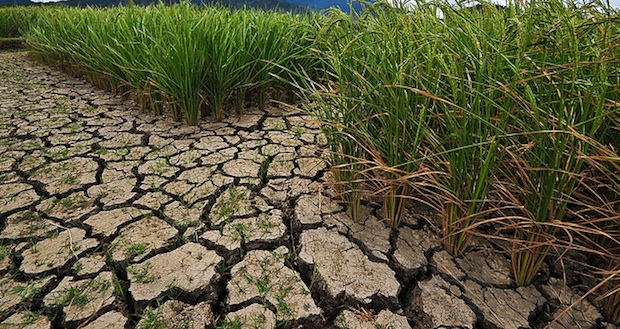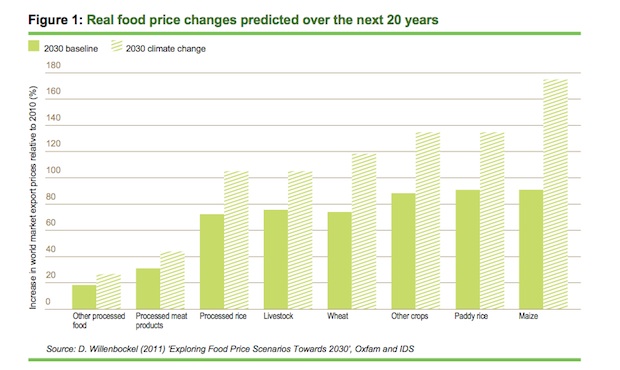Climate change will cause the price of staple foods like corn, rice, and wheat to more than double over the next 20 years. It's already starting in China.

Climate change does more than just wreak havoc on the weather; an unpredicatable climate makes it hard to farm, which causes the food in your local grocery store to become a lot more expensive. A new report from Oxfam explains that the price of staple foods like corn, rice, and wheat will more than double over the next 20 years because of climate change--and events in China are already proving the extent of the issue.
A perfect storm of problems is coming together to threaten the world's food supply: oil price spikes (this translates into increased transportation and fertilizer costs), increased competition for land from biofuel and other non-food producers, and, of course, unpredictable weather.

By 2050, over 4 billion people will live in areas where demand for water is greater than supply. This is because of shrinking glaciers (this reduces water flows in major areas like the Ganges and Yellow River), droughts, increased floods (this contaminates clean water), and rises in sea level (this salinates fresh water). That means there will be significantly less water for agriculture, which is responsible for 70% of global fresh water use.
We can already see hints of what is to come in China, which is currently suffering through its worst drought in 50 years. As a result, the average price of staple foods has increased significantly, and the price of certain leafy vegetables has jumped 16% in the past month, according to China Daily. Over the past week, the price of crab, shrimp and freshwater fish has risen as rivers and lakes continue to dry up.
What can we do to protect ourselves? Farmers would be wise to look into weather insurance programs like WeatherBill. The rest of us should just hope that global-food reserves are increased and that small-scale farmers gain traction. As it stands, just three companies (Archer Daniels Midland, Bunge, and Cargill) control 90% of the planet's grain trade. That's not exactly diversifying our food assets.
Comments